President Putin's Call for Restraint
The current geopolitical landscape in the Middle East has always been complex, and recent events have added an extra layer of tension. Russian President Vladimir Putin has reportedly made a significant diplomatic move by urging Iran to ensure that its actions avoid targeting civilian areas in any potential retaliation against Israel. This call for restraint comes in the wake of the assassination of Ismail Haniyeh, the Hamas political leader, within Iranian territory.
Putin's request is particularly noteworthy given the timing and the stakes involved. The assassination of Haniyeh has set off a chain reaction of heightened anxieties and preparations for possible retaliatory strikes. As a key ally to both nations involved, Russia finds itself in a delicate position, having to manage its alliances while advocating for actions that could prevent a broader conflict. By urging Iran to avoid civilian casualties, Putin positions Russia as a mediator aiming to de-escalate the rapidly intensifying situation.
The Impact of Haniyeh's Assassination
Ismail Haniyeh's assassination has sparked a wave of anger and vows of vengeance from various factions within Iran and its allies. The killing of this prominent figure, integral to the Palestinian cause, represents not just a loss of leadership but also an affront that requires a response in the eyes of many within the region. The immediate aftermath saw statements from Iranian officials and allied groups indicating that retaliation against Israel was inevitable.
This episode underscores the fragility and the intricate web of relationships that define Middle Eastern geopolitics. Iran's reaction could take numerous forms, but the emphasis on minimizing civilian harm as encouraged by President Putin aims to mitigate potential humanitarian crises that could result from widespread military actions. Putin's intervention seeks to moderate the approach, reducing the likelihood of indiscriminate violence that often accompanies such escalatory phases.
Geopolitical Ramifications
Russia's involvement in this scenario emphasizes the broader implications of any regional conflict. As a significant player on the world stage, its interests in both Iran and Israel necessitate a careful, strategic approach. Russia has cultivated strong relations with Iran through economic partnerships and mutual political interests, particularly in opposing Western influence in the region. Concurrently, it maintains a working relationship with Israel, primarily driven by security concerns and technological exchanges. This dual allegiance puts Russia in a unique position to potentially mediate and influence outcomes in the Middle East.
The regional security concerns cannot be overstated. Any military clash between Iran and Israel risks drawing in neighboring countries and escalating into a broader conflict that would have devastating implications. Putin's plea to Iran reflects a broader strategy aimed at preventing these regional tensions from boiling over into a full-scale war. The delicate balance requires diplomacy, dialogue, and a concerted effort to avoid actions that could irreparably harm civilian populations.
Regional Security Dynamics
Furthermore, the broader geopolitical dynamics at play involve numerous state and non-state actors. Beyond Iran and Israel, nations like the United States, Saudi Arabia, and Turkey have vested interests in how this situation unfolds. Each of these countries has its alliances, enmities, and strategic objectives that contribute to an already volatile mix. For example, the U.S. has historically supported Israel while remaining cautious of Iran's regional ambitions. Saudi Arabia views Iran as a competitor for regional dominance, and Turkey's interests fluctuate based on its domestic and international strategic imperatives.
Putin’s appeal might also be seen as an effort to stabilize these numerous intertwined relationships. Each step towards escalation not only jeopardizes immediate peace but also disrupts the long-term regional stability that countries like Russia seek to maintain. A measured response, as Putin advocates, aims to serve as a balancing act, hoping to avert the nightmare scenario of a wider regional conflict.
The Role of Mediation
The necessity for mediation in such volatile scenarios is critical. Putin's efforts underscore the need for international diplomacy and engagement to prevent the worst outcomes. The role of the UN, regional bodies like the Arab League, and even bilateral discussions could play a part in defusing tensions. International arbitration could help ensure that responses are proportional and targeted, rather than broad and indiscriminate.
Additionally, the humanitarian concerns are front and center in such conflicts. Civilian populations often bear the brunt of military actions, suffering losses and displacement. Calls for restraint are rooted in the understanding that lives lost and humanitarian crises precipitated by conflict have long-term repercussions that persist well beyond the immediate timeframe. Putin's urging is a reminder of the human cost of war and the critical importance of prioritizing non-combatants in military planning.
Outlook and Future Implications
As of now, the situation remains highly fluid. Iran's response and whether it heeds Putin's call for avoiding civilian casualties will significantly shape the immediate future of the region. The stakes are high, with the potential for a single miscalculated move to set off a domino effect of escalating violence. It is a moment fraught with peril, but also one where diplomatic interventions could make a substantial difference in steering the course towards a more peaceful resolution.
In the broader context, this incident highlights the ongoing necessity for robust international diplomacy in managing conflicts. The involvement of powerful nations like Russia, the communication channels between key players, and the concerted efforts to mitigate violence serve as poignant reminders of the interconnected nature of global politics. The call for restraint is not just about immediate tactical decisions but about shaping a strategic landscape that prioritizes human life over geopolitical gains.
Ultimately, the region watches closely as the world leaders maneuver through this complex web of alliances and enmities. President Putin’s appeal to Iran is one move in a multi-faceted political chess game, where each piece's movement can tilt the balance between war and peace.
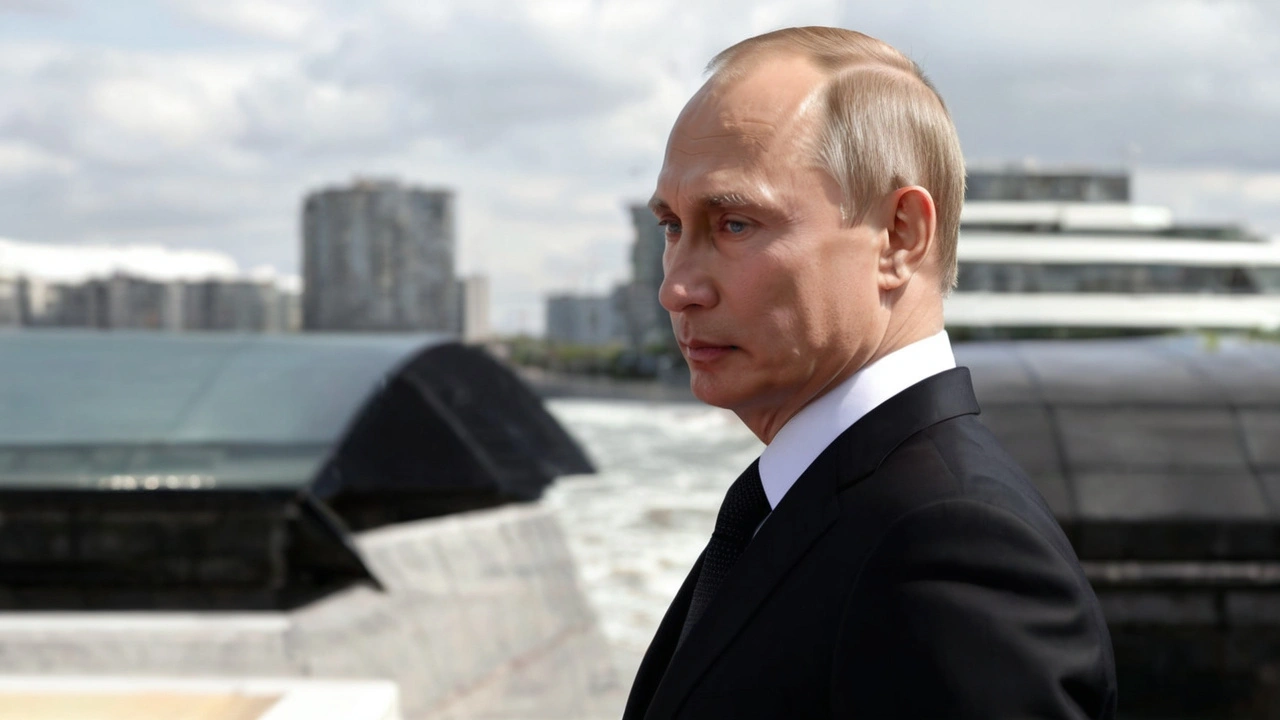
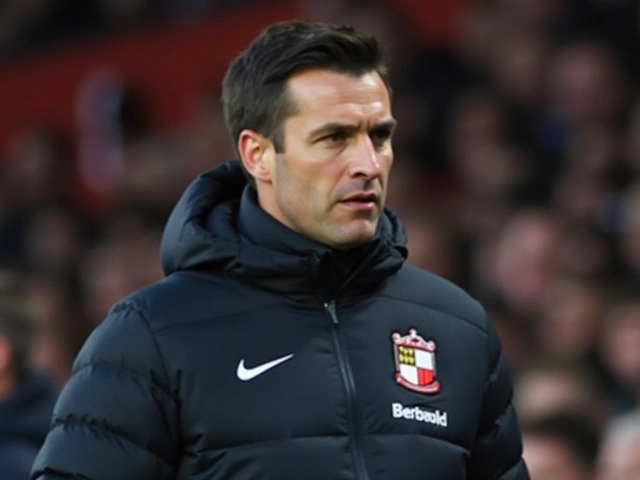
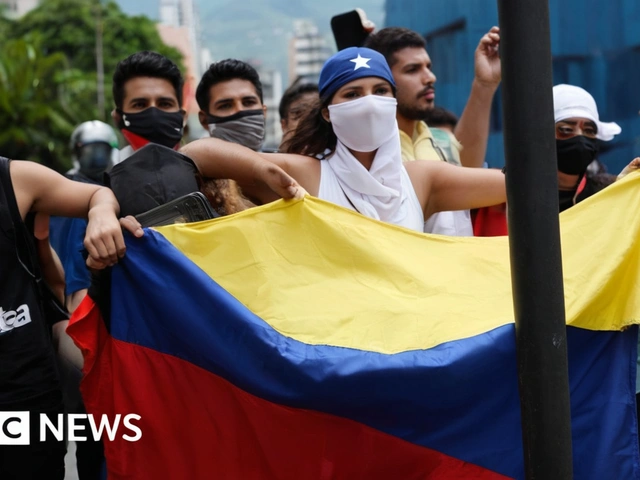

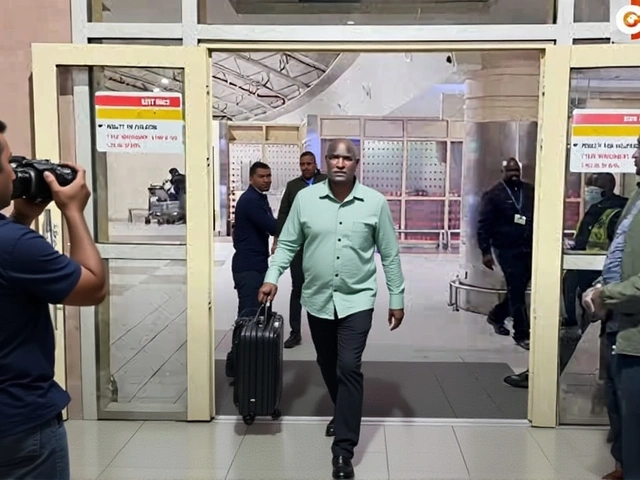
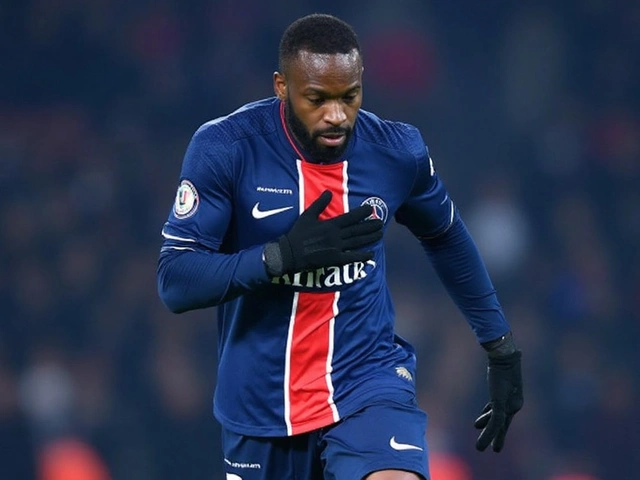
18 Comments
Ruben Figueroa
August 7, 2024 AT 07:14 AMOh wow, Putin’s playing the peacekeeper now? 🤡 Next he’ll be handing out cookies to both sides while secretly shipping missiles to Iran. Classic Russian ‘diplomacy’-always with the double entendre and the third-degree burns on the humanitarian flag. 😂
Gabriel Clark
August 7, 2024 AT 07:23 AMThe call for restraint is not merely diplomatic posturing; it reflects a strategic recognition that civilian casualties would irreversibly destabilize regional institutions. Historical precedent, from Lebanon 2006 to Gaza 2014, demonstrates that disproportionate retaliation amplifies radicalization. A measured response is not weakness-it is statecraft.
Steve Cox
August 7, 2024 AT 14:16 PMThis whole thing is just a theater of the absurd. Russia has zero moral authority to lecture anyone on civilian protection. Meanwhile, the U.S. is quietly applauding from the sidelines because it doesn’t want to lose its arms deal with Israel. Everyone’s a hypocrite here. Just say it.
Aaron Leclaire
August 7, 2024 AT 15:37 PMLies.
Mitch Roberts
August 9, 2024 AT 09:32 AMBro this is wild-like, imagine if your neighbor’s kid got shot and you were the guy who gave both the shooter AND the victim’s family a hug? That’s Putin rn. He’s not trying to stop war-he’s trying to be the guy who gets invited to both funerals. 🤝🔥
Mark Venema
August 10, 2024 AT 16:18 PMThe strategic imperative for de-escalation cannot be overstated. Civilian targeting would trigger cascading security dilemmas across the Levant, potentially destabilizing nuclear deterrence frameworks and inviting non-state actors to exploit power vacuums. Diplomatic channels must be preserved at all costs.
Brian Walko
August 11, 2024 AT 02:55 AMIt’s easy to sit back and call for restraint when you’re not the one losing your family. But Putin’s position isn’t hypocritical-it’s pragmatic. Russia has interests in both Tehran and Jerusalem, and if this escalates, their supply lines, intelligence networks, and economic partnerships collapse. This isn’t about morality. It’s about survival.
Derrek Wortham
August 12, 2024 AT 11:52 AMI CAN’T BELIEVE YOU’RE ALL JUST ACCEPTING THIS NARRATIVE!! This is the same man who invaded Ukraine under the guise of ‘peacekeeping’!! Putin is not a mediator-he’s a predator waiting for the right moment to strike!! And Iran? They’ve been bombing schools for YEARS!! This isn’t diplomacy-it’s a trap!!
Mark Dodak
August 13, 2024 AT 09:00 AMI think people are missing the bigger picture here. Russia’s move isn’t about saving civilians-it’s about positioning itself as the only power that can control the narrative. If Iran strikes and civilians die, Russia can say, ‘We warned you.’ If Iran doesn’t strike, Russia looks like a peacemaker. Either way, they win. It’s realpolitik at its finest. The civilians? They’re just pawns in a game nobody asked them to play.
Stephanie Reed
August 13, 2024 AT 14:35 PMI really hope Iran listens. Not because of Putin, but because every child killed in retaliation makes the world more broken. I’ve seen videos of schools in Gaza with no walls left-no desks, no books, just rubble. If we let this spiral, we’re not just losing lives-we’re losing the idea that peace is even possible.
Jason Lo
August 15, 2024 AT 03:50 AMOh please. Putin’s got a 100-year plan to turn the Middle East into a Russian playground. He doesn’t care about civilians-he cares about control. And Iran? They’re not going to listen to anyone who’s helping Assad gas his own people. This whole thing is a distraction while Russia quietly expands its naval presence in the Mediterranean. Wake up.
Brian Gallagher
August 15, 2024 AT 22:31 PMThe operational calculus here involves asymmetric deterrence dynamics and the non-linear escalation probabilities inherent in hybrid warfare environments. Russia’s diplomatic overture functions as a signaling mechanism to constrain the action-reaction cycles that characterize regional security dilemmas. The objective is to maintain strategic ambiguity while preserving third-party leverage.
maggie barnes
August 16, 2024 AT 23:25 PMlol Putin's 'restraint' is just code for 'don't make it look bad before the UN vote'... and Iran? They'll hit back with drones made from IKEA furniture and a prayer. This whole thing is a dumpster fire with a fancy press release. #WhoReallyCares
ria ariyani
August 18, 2024 AT 22:23 PMWait-so the guy who let Chechnya burn, who invaded Georgia, who bombed Syria into dust, who’s got troops in Ukraine, is now the voice of reason?!?!?!?!!?!!? This is like a serial killer giving parenting advice!! And you people are nodding along like it’s normal?!?!!
Emily Nguyen
August 19, 2024 AT 15:21 PMLet’s be real: the U.S. and Israel have been calling Iran a rogue state for decades while selling them weapons through third parties. Now Putin steps in? Please. This is about Russia filling the vacuum left by American disengagement. And no, he’s not doing it for the kids-he’s doing it because he wants to be the guy who gets the Nobel Prize while Russia’s nukes keep ticking.
RAJIV PATHAK
August 19, 2024 AT 22:04 PMAh, the grand Western narrative: Putin the peacemaker. How quaint. In Delhi, we call this ‘strategic ambiguity with a side of hypocrisy.’ Russia’s interests are clear: weaken NATO’s influence by keeping the Middle East burning. Restraint? No. Delay. Manipulation. Control. The civilians? Just collateral in a chess game played by men who’ve never seen a refugee camp.
Nalini Singh
August 20, 2024 AT 16:58 PMThe invocation of restraint must be understood within the context of civilizational responsibility. In Indian philosophy, ahimsa is not passive; it is the most courageous form of resistance. To call for restraint in the face of provocation is not weakness-it is the highest expression of moral leadership. Whether Putin embodies this is debatable, but the principle remains universal.
Sonia Renthlei
August 20, 2024 AT 18:18 PMI’ve been thinking about this a lot, and it keeps breaking my heart. I grew up hearing stories from my grandparents about how war doesn’t end when the guns stop-it ends when the last child stops having nightmares. I don’t care who’s saying it-Putin, the UN, a random grandma on the street-if someone’s asking for restraint, we should listen. Not because they’re perfect, but because the alternative is too terrible to imagine. Every life matters. Even the ones we don’t know. Even the ones on the other side of the world. We owe them that much.